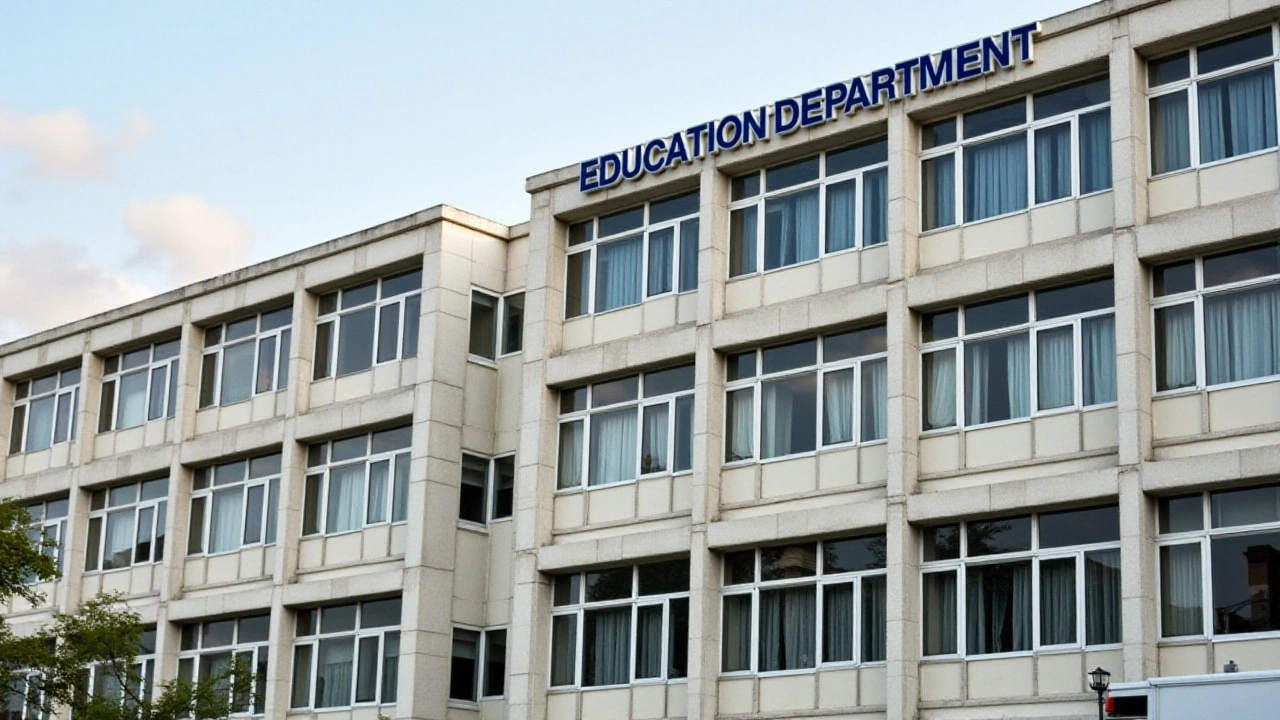Education Department Shake-Up: Tensions Rise Over Diversity Training
Earlier this week, the Trump administration ignited a political firestorm by suspending 74 officials from the Department of Education. These individuals were linked to diversity training programs, a move that has sparked intense debate and raised eyebrows throughout legal circles. Described by many as an 'act of intimidation,' this decision aligns with President Trump's broader strategy to dismantle perceived administrative overreach through executive action.
Sweeping Decisions Raise Legal and Ethical Concerns
The administration's actions align closely with a directive to defund certain aspects of the Education Department, ostensibly via executive fiat. However, the legislative branch continues to hold the purse strings, adding complexity to the situation. Civil rights advocates and educational professionals alike question the legality of these suspensions, seeing a thinly veiled attempt to stifle essential diversity initiatives that have been a staple of the department's efforts towards inclusive education.
Uncertainty Looms for Key Educational Programs
What's at stake here isn't just the careers of those 74 employees, but also the future of pivotal programs such as Title I and the Individuals with Disabilities Education Act (IDEA). The prospect of significant budget cuts leaves these programs teetering on the edge of an uncertain future. Those relying on the support provided by these initiatives may well find themselves adrift should funding be slashed as proposed.
Meanwhile, affected staff and their respective unions have rallied against what they perceive to be a breach of civil rights. They argue that such actions not only undermine their work but potentially violate fundamental rights and protections enshrined in law. A chorus of dissent echoes across various education sectors, calling for a reassessment of executive strategies that compromise vital learning resources.
Political and Social Ramifications
This move by the Trump administration underscores the growing polarization regarding how diversity in education is approached. Some view the administration's rigid stance as a necessary correction against what they perceive as unchecked liberalism within bureaucratic structures. Others see it as a dangerous precedent, marginalizing essential conversations about diversity and equality in American education.
As the debate rages on, stakeholders await further developments with bated breath. The outcome of this saga could redefine the boundaries of executive influence over education policies while testing the resilience of long-standing civil rights protections. In this charged atmosphere, the suspended officials serve as a vivid symbol of the ideological battleground that education has become, an arena where politics and pedagogy intersect in increasingly volatile ways.





